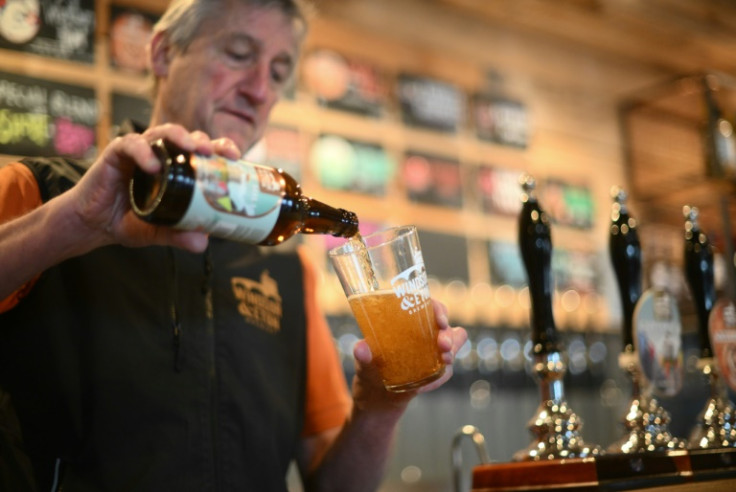UK hospitality sector not against recycling but fears red-tapism from Scotland's Deposit Return Scheme
As per the scheme, customers will have to pay 20p as a deposit when they purchase things in containers like bottles of wine and jars.

The United Kingdom's trade association from the hospitality industry, UKHospitality which represents many businesses in this sector has welcomed the Deposit Return Scheme delay in Scotland.
Several pubs, hotels, restaurants, cafes and other businesses are part of this organisation. Hence, their opinion on this matter echoes the sentiments of the industry.
What is the Deposit Return Scheme?
As per the scheme, customers will have to pay 20p as a deposit when they purchase things in containers like bottles of wine, jars, etc. The deposit will be returned to consumers once they return the containers. There are some penalties reserved for retailers and producers not abiding by the schemes. The scheme is likely to come into effect from March 1, 2024, if it goes through.
However, not all containers will fall under the Deposit Return Scheme. Only containers made of PET plastic, glass and metal come under this. Milk carton plastic isn't part of this. Also, the capacity of the containers is essential here. This is only applicable to containers having a capacity range of 100 ml to 3 litres. Earlier, the starting range was 50 ml but now it has been increased to 100 ml. This scheme is only applicable in Scotland. As per the scheme, these containers have been designated as "scheme containers" and their constituents labelled as "scheme articles".
With this scheme in place, Scotland will be the first region in the UK to introduce a Deposit Return Scheme on drinks containers
Why this delay?
As per a Scottish government's announcement on June 7, the Deposit Return Scheme has been deferred till October 2025 over some issues raised by the UK government.
The UK government has agreed to a full exclusion of this scheme from the Internal Market Act. They have asked for certain conditions to be imposed on the scheme so that it follows the pattern of all other schemes applicable throughout the UK. Under these concerns, materials like glass have to be removed from the scheme.
Scotland isn't happy with this and they are asking for more details from the UK government. Scotland feels that businesses can't implement this scheme with certainty if all elements aren't clear to them. Hence, the decision to defer the scheme was taken after consulting key businesses in the hospitality sector.
Scottish Circular Minister Lorna Slater reiterated this when she informed the Scottish parliament that they have no other option than to defer the scheme
As of today, it is now clear that we have been left with no other option than to delay the launch of Scotland's DRS, until October 2025 at the earliest based on the UK Government's current stated aspirations.
Slater made it clear that the government is committed to DRS and it would come sooner or later. She wrote to the UK government on June 6, urging them to negotiate and reset the good faith in Circularity Scotland and DRS partners in Scotland.
Scotland will have a Deposit Return Scheme. It will come later than need be. It will be more limited than it should be. More limited than Parliament voted for.
Slater has put the onus on the UK government regarding the delay of the scheme.
These delays and dilutions lie squarely in the hands of the UK Government which has sadly seemed so far more intent on sabotaging this parliament than protecting our environment.
A relief for the hospitality industry
This delay has set a sense of relief amongst hospitality business owners in Scotland. From this, we can gauge the mood of the industry regarding the Deposit Return Scheme.
The Executive Director of UKHospitality Scotland, Leon Thompson echoed the same sentiments when he said that the organisation is happy that their concerns were heard.
Hospitality businesses across Scotland will be breathing a huge sigh of relief hearing this news and I'm delighted that the concerns raised by UKHospitality Scotland have been heard loud and clear.
Thompson reiterated the inept nature of the scheme which many businesses in the hospitality sector raised concerns about. This made it impossible to launch the scheme by March 1, 2024, and the UK government's intervention has further strengthened that.
What needs to be done?
To make this scheme simple and easily adaptable for businesses in the hospitality sector it needs to be aligned maximally with other schemes and should be interoperable with all other schemes applicable across the UK. Since this is the third time the Deposit Return Scheme has been delayed, it is important that all governments come together and launch a joint approach, said Thompson.
Genuine sustainability schemes needed
Thompson underlined that hospitality businesses are not against recycling. In fact, they are the best recyclers in business. It's the burden of red-tapism and the added cost that the industry is afraid of.
Businesses are not against a recycling scheme – far from it. Hospitality already has one of the best recycling records in the economy and we can do even more, but a Deposit Return Scheme needs to work for businesses. It cannot be yet another piece of red tape that is costly and burdensome.
"It's better to work a scheme that truly upholds sustainability and seeks to achieve environmental targets," Thompson further added.
© Copyright IBTimes 2025. All rights reserved.






















